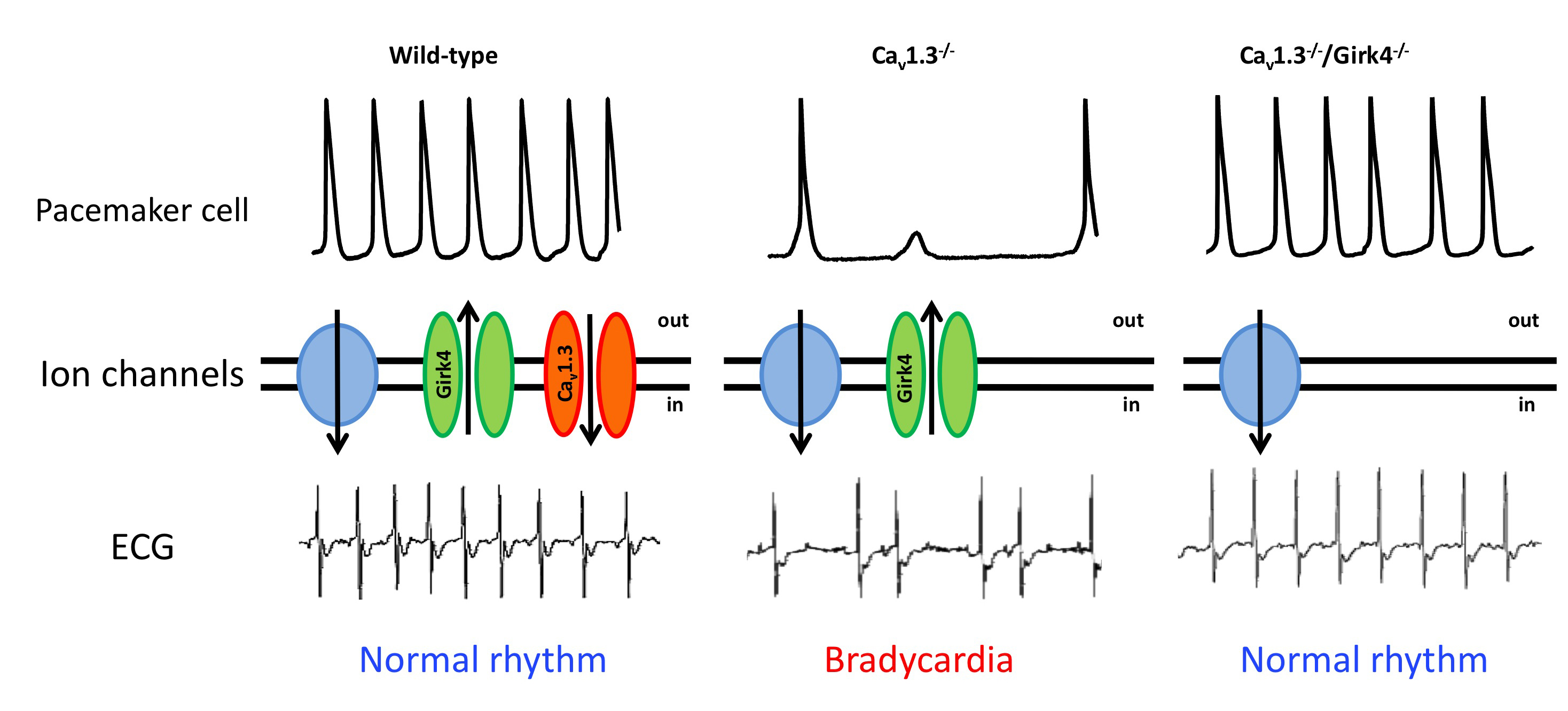
UN NOUVEAU CONCEPT THÉRAPEUTIQUE POUR SOIGNER LA BRADYCARDIE
La bradycardie se caractérise par une fréquence cardiaque trop lente pour assurer les besoins de l'organisme. La seule thérapie actuellement disponible
pour la bradycardie est l'implantation d'un pace-maker électronique. L'étude conduit au sein de l'équipe "physiopathologie cardiaque et cardioprotection" de l'IGF montre que l'inactivation génétique ou l'inhibition pharmacologique des canaux K+ activés par le G protéines (IKACh) est capable de normaliser la fréquence cardiaque dans une souris modèle de bradycardie congénitale humaine. En particulier, l'étude montre que la tertiapin-Q, un peptide inhibiteur d'IKACh extrait du venin de l'abeille est capable de rétablir l'équilibre entre courants ioniques entrants et sortants dans les cellules cardiaques automatiques. Ce phénomène, baptisé "ciblage du canal compensatoire"(compensatory ion channel targeting) pourrait constituer un nouveau paradigme pour le développement de nouveaux médicaments anti-arythmiques.

A NEW THERAPEUTIC CONCEPT FOR MANAGING BRADYCARDIA
Bradycardia is characterized by abnormal formation and/or propagation of the cardiac impulse. Bradycardia is responsible for about half of the total implantation of electronic pacemakers, which constitute the only currently available therapy for this disorder. Now, a study by the "cardiac physiopathology and cardioprotection" team at the IGF shows that genetic ablation or pharmacological inhibition of the G protein-gated K+ channel (IKACh) prevents bradycardia. The study shows that the bee venom peptide Tertiapin-Q can rescue cardiac impulse formation and conduction in a mouse model of bradycardia. Thus, “compensatory” genetic or pharmacological targeting of IKACh channels may constitute a new paradigm for restoring defects in the balance between inward and outward currents in pacemaker cells. The study may thus open a new therapeutic perspective to manage dysfunction of formation and conduction of the cardiac impulse.
Lien publication : Pubmed






